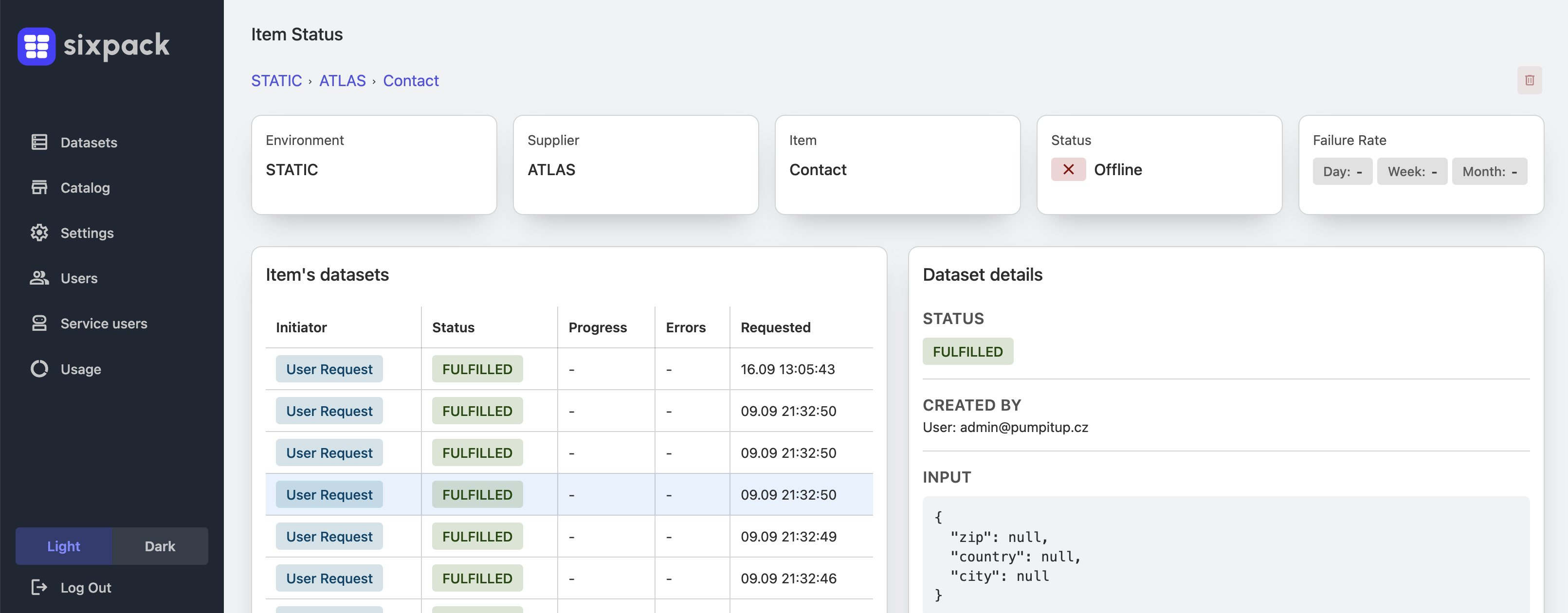Get Production-Like Test Data in Just One Click
Orchestrate test data across complex environments

One Click
Request realistic
test data

Instant Data
Pre‑generated, production‑like

Run Tests
New test data
for each scenario
Problems We Solve
We help you move forward at any level
Why Choose Sixpack?
Consistent test data for reliable and fast software delivery
Realistic and compliant
Generate realistic test data that behaves like production, without production access and with compliance in place.
Centralized self-service access
Teams have immediate access to test data through a centralized self-service portal, without manual configuration and no tickets.
Data ready upfront
Pre-generated and versioned datasets are immediately available for pipelines, automation and manual testing.
Integrity across systems
Keep data perfectly consistent across microservices, even when teams deploy independently.
Parallel testing at scale
Enable parallel testing at scale, reduce flaky tests, and shorten release cycles with stable test data.
How does it work
Orchestrate, monitor, and manage test data across all environments
Sixpack automates test data like a smart supply chain:
- It generates realistic, production-like data by running business processes without touching production
- Pre-generated data is stored and delivered on demand via a self-service catalogue
- Always ready, always consistent: as simple as shopping online

Users request data, Sixpack fulfills instantly or on demand:
- Testers create data requests through the UI for specific scenarios
- Automated tests request data via REST calls inside pipelines
- Sixpack allocates pre-generated data from the buffer or queues ad hoc automation requests when needed

Product features
Simple to use but powerful under the hoodYour team keeps its domain knowledge and benefits from new orchestration features added regularly through Sixpack SaaS.
UI and REST
Self-service UI and REST API for your test data scripts
Datasets buffering
Pre-generates datasets in a buffer for instant delivery
Just-in-time leasing
Leases fresh datasets on request to avoid collisions
SDKs
SDKs for multiple languages integrate with your automation
Autoconfiguration
Detects scripts and environments for fast setup
Lifecycle
Generates, refreshes, and cleans up data automatically
Monitoring
Monitors script execution and data delivery automatically
Alerting
Alerts teams when generation or delivery issues occur
Architecture
How does it work under the hoodSixpack provides realistic, production-like test data across distributed systems by running team-owned generators and orchestrators, while managing buffering and delivery centrally.

